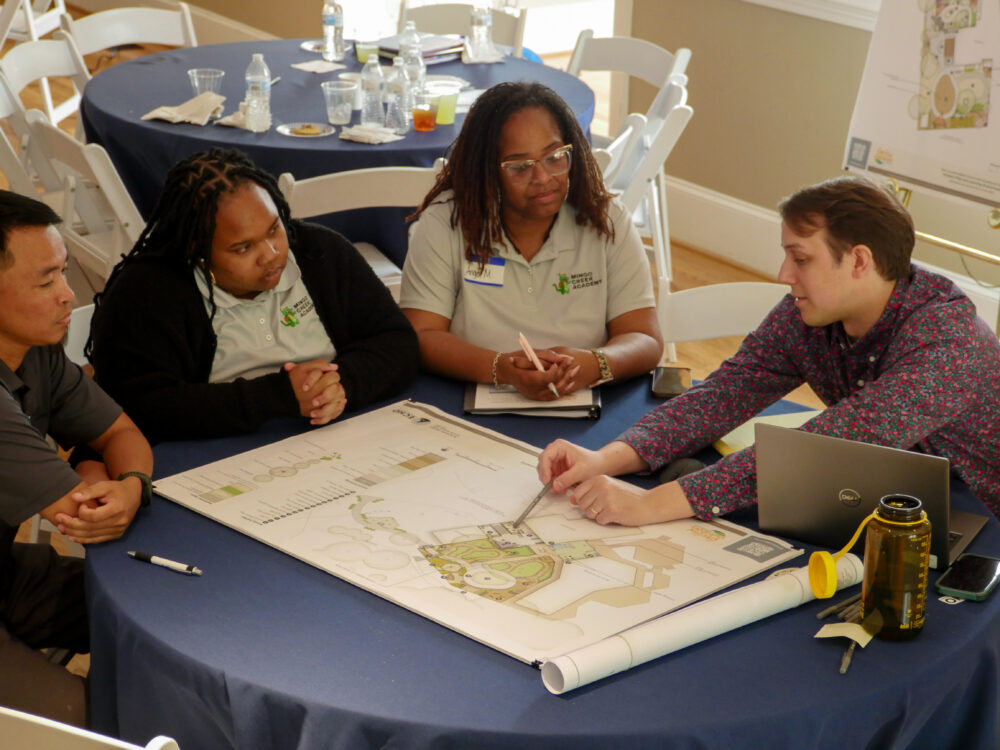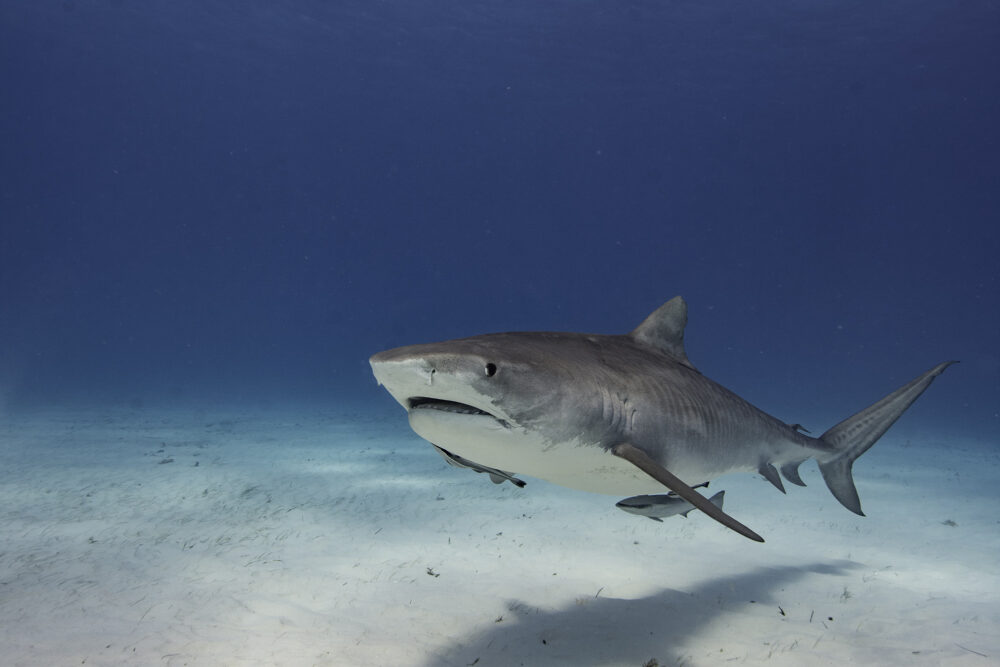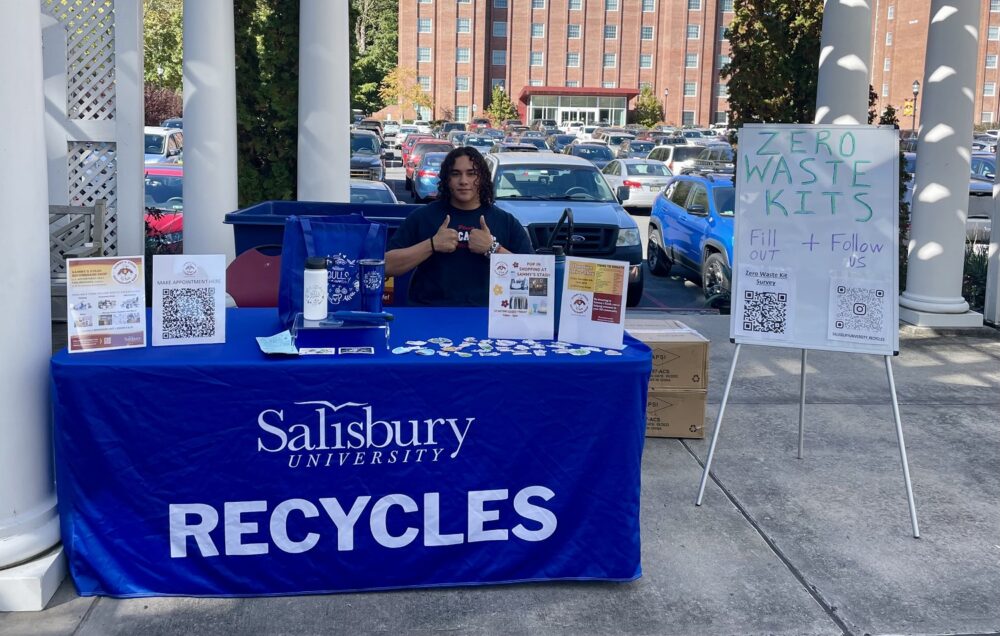We have much more to do and your continued support is needed now more than ever.
Sustainability in Higher Education Outlook for the 2019-2020 School Year
With the fall semester in full swing, sustainability offices around the country are gearing up for a new year. In my role as the National Wildlife Federation Higher Education Sustainability Fellow, I’ve had the opportunity to interview a number of college and university sustainability coordinators about what’s top of mind for them this academic year and a few themes have emerged.
Sustainability as an Exemplar of Co-Curricular Learning
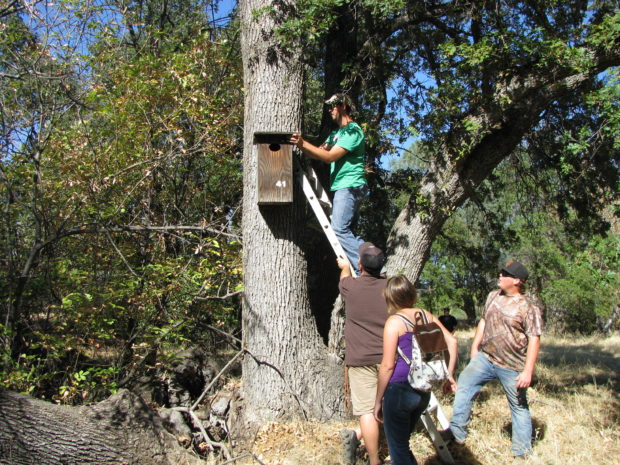
Many higher education institutions are currently undergoing general education curriculum revision initiatives to address concerns about academic rigor, career relevancy, and changing student demographics. In this landscape, co-curricular learning is a hot topic right now and many campuses and Co-Curricular Sustainability Programs (CoCSPs) are growing in popularity. One of the early adopters of this model is the Co-Curricular Sustainability Program at Portland State University. The Sustainability Leadership Center CoCSP was launched in 2009 and PSU’s motto is “Let Knowledge Serve the City”. The programs that the Center offers offer a “web of opportunities” for students to participate in and co-create collaborative intentional learning communities.
At the same time, institutions are looking at new ways to incentivize and track student participation in co-curricular learning experiences. One innovative example of this is Elon University’s Elon Experiences Transcript, where student participation in co-curricular activities is recorded on their transcript, allowing for a more defined portfolio of materials for students to share with future employers. This portfolio provides examples of applied learning, teamwork, the leadership of peers, project implementation, and other measurable outcomes.
As university leadership and faculty senate bodies across the country engage in debate and revision of general education curriculum, some sustainability offices are pushing these curricular decision-makers to consider both of these models to imagine and implement sustainability studies across the curriculum in ways that have direct transferability to student careers in a wide range of sectors.
The Global Strike for Climate
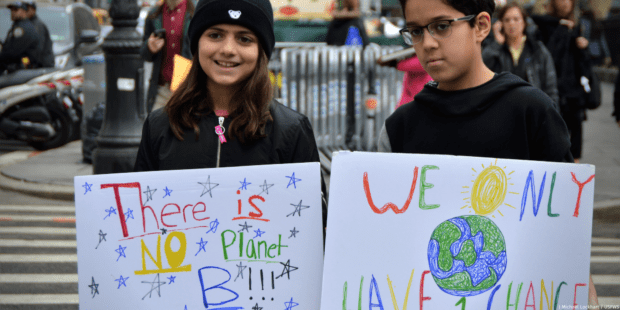
As the semester began, the Global Strike for Climate was at the forefront of many sustainability officers’ minds this semester. Building off of the Fridays for the Future movement, Global Climate Strike worked to rally students and supportive adults to leave school and work on September 20, ahead of a UN emergency climate summit meeting on Sept 23, and again on September 27. These climate strikes were in response to the 2018 UN Intergovernmental Panel on Climate Change (IPCC) report that clearly details how within the next 12 years the globe’s climate will increase by 2.7 degrees Fahrenheit (1.5 degrees Celsius) and the impacts will be devastating unless immediate action is taken. Swedish student Greta Thunberg traveled to the U.S. to draw attention to these strikes and is continuing them every Friday as she travels through the Americas. 350.org estimates that over 7.6 million people took part in these strikes worldwide, making this the biggest climate activism event in world history to date.
At my new home institution, the University of Montana, incoming students have cited sustainability and responding to climate change as being among the most important issues to them. In response to these concerns my institution and others I have spoken with are organizing informal and formal teach-ins in lieu of active encouragement at absenteeism, and encouraging students to participate in these teach-ins to learn and be inspired to action beyond the strike.
Many I have spoken with have touched on the question of what does it mean to be an academic and/or an engaged professional in a society facing enormous challenges that require a response. How do experts engage in important debates on controversial topics while maintaining their job security? This is particularly relevant to non-tenured faculty and staff who do not enjoy the protections of tenure. So far I haven’t reached a clear conclusion, but these concerns are top of mind for this upcoming academic year.
Responding to Budget Cuts: Pushing Facilities to take on Sustainability Infrastructure Projects
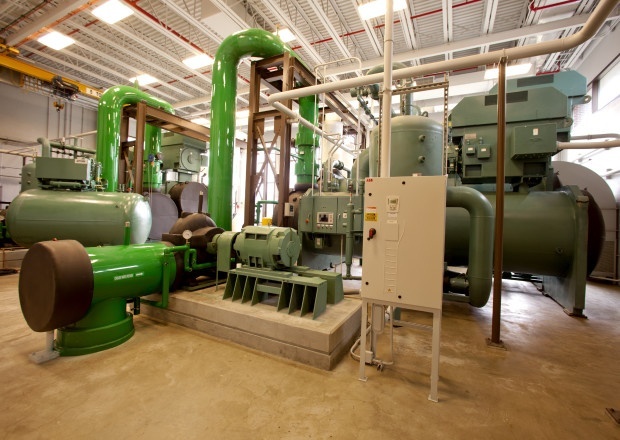
While most of my interviewees described that sustainability is increasingly an institutional priority at their institutions, budget cuts continue to be a challenge for many. Sustainability offices also often face the challenge of straddling both operations and curricular programs. In many cases, university facilities offices look to their sustainability staff to help them manage recycling, transportation, and food waste programs. At the same time, sustainability offices want to ensure that students attending their institutions have opportunities to learn about sustainability broadly and to make interdisciplinary connections that the silo-ed structure of the organization is not always conducive to. When sustainability offices focus most of their energy to support the initiatives of facilities, co-curricular learning opportunities for students often suffer. In this context, some staff that I talked to described a renewed process of training facilities to take on the responsibility of managing campus transportation, waste management, and energy initiatives so that they could better serve student learning through co-curricular programs.
Connecting to Wildlife Issues
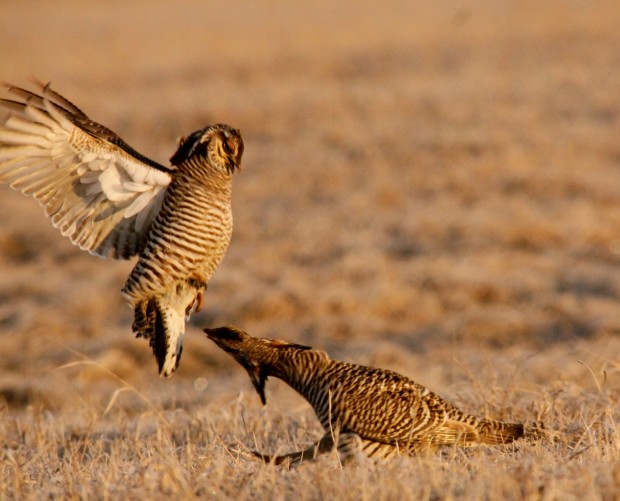
An area of sustainability curriculum in higher education that directly ties to the work of NWF is the growing concept of ecosystem services. Basically, the idea of this is that ecosystems provide “natural services” to communities and then there becomes an economic incentive for communities to conserve wildlife and to care about conservation and environmental stewardship. Here in Montana this involves looking at how to incentivize ranchers to implement predator friendly ranching practices to support wolf and bear populations, as well as wild game populations that range between the Centennial Valley and Yellowstone National Park. Universities, like the University of Montana and Montana State University, can provide ranchers, conservationists, and businesses opportunities to utilize academic faculty and students to help research and develop innovative solutions to solve the challenges of how to best compensate ranchers for providing vital habitat to predators that may result in the loss of some of their livestock.
It looks to be another active year for sustainability offices across the nation, with a renewed focus on public participation, engaging students in co-curricular learning opportunities, and training cross-sectional units across campus to support sustainability efforts. As I work to conclude my report on the state of sustainability education in higher education, I welcome any insights and perspectives from your office. Please feel free to reach out to me through the NWF EcoLeaders Community.
About the author:
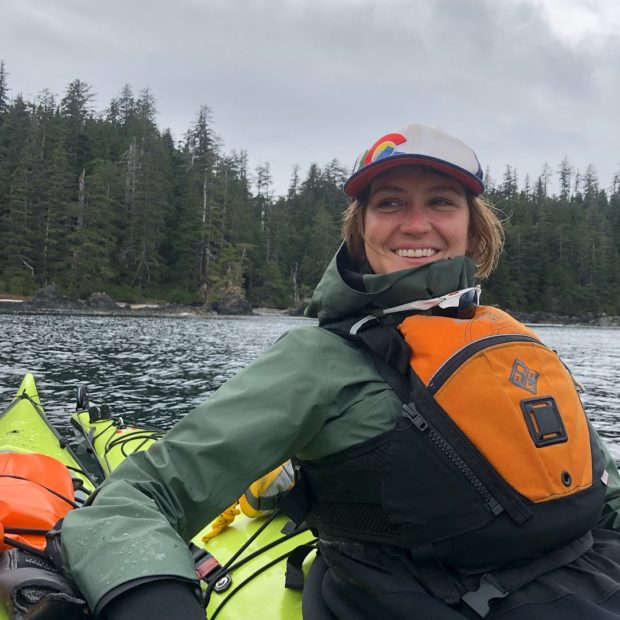
Lauren Collins recently earned her Ph.D. in Higher Education from the University of Denver and is currently conducting post-doctoral research at the University of Montana while also serving as the NWF Higher Education Sustainability Fellow. She is a critical scholar, ethnographer, and educator focused on the social context of global education. Her interest in global education has its roots in exploring alternatives to neoliberal capitalism and the associated exploitation of natural resources. At the University of Denver, she has worked on sustainability-related initiatives ranging from carbon offsetting study abroad, to addressing food insecurity and food waste via management of the campus food pantry, and the development of a campus speaker series on environmental issues that are at stake in local and national elections. She is thrilled to be a National Wildlife Federation Fellow and her project is a survey of the sustainability landscape in higher education in the U.S., especially as it relates to curriculum, careers, and K-12 partnerships.














